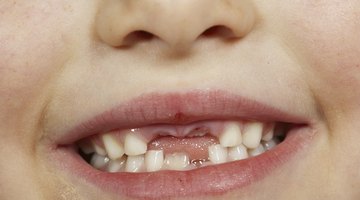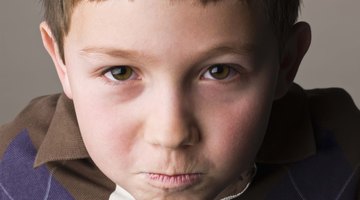Parenting: What to Do When Your Child Is Kissing Another Child
Kissing is a form of affection, and many children kiss others because they want to show their love.
Children enjoy being kissed because it means that someone cares about them.
While kissing parents, grandparents, siblings and other family members is usually socially acceptable, you probably don't want your child kissing his friends and peers. Don't panic if your child was caught kissing another child, but do take steps to teach him that there's a time and a place for kissing.
Children Kissing
Children of all ages see adults kissing one another and most children also receive kisses from parents and other adults. That sends the message that kissing is acceptable and that it's something people do to show love. It's no wonder then that many children pucker up and kiss a friend on the playground.
In almost all cases involving little children, that kiss is innocent and is simply a way for a child to show how much he cares for his friend, according to the Women's and Children Health Network. If your child has been caught kissing another child, it's probably not something to worry about too much, but it does warrant a conversation with him. He needs to know, especially as he reaches adolescence, that social customs restrict certain kissing behaviors.
Dangers of Kissing
How to Teach Toddler Not to Hit
Learn More
Kids harbor germs. When they kiss one another, they're sharing those germs.
That could transfer a cold or other virus back and forth, but it can also lead to more serious illness. According to KidsHealth, many children are exposed to the Epstein-Barr virus, which causes mild flu-like symptoms in young children, but can develop into mononucleosis, or mono, in older children. Mono causes headache, sore muscles, skin rash and abdominal pain, and these symptoms can linger for two to four weeks, but can last even longer for some teens. When your child kisses another child, she's also at risk of catching other viruses, such as those that cause cold sores or fever, according to KidsHealth.
Additional Kissing Concerns
For young children, a kiss on the cheek or even the lips is all there is to the episode.
Most little children don't connect kissing with sexuality; they simply see it as a way to tell a friend how much they care. A conversation with adolescents and teenagers is a must if you discover they've been kissing other children. At this age, children begin to go through puberty and also start showing an interest in the opposite sex. Children this age also know the facts about sex, so they can be more likely to give it a try.
Because kissing can lead to other sexual acts, it's essential to speak with your child about what's acceptable in your family and what's not.
For example, you might think a quick peck on the lips is acceptable for your child to share with a boyfriend or a girlfriend, but other types of kissing are not. Tell your child your expectations so you're on the same page when it comes to kissing.
Tips and Considerations

Why Do Toddlers Laugh When Disciplined?
Learn More
If your child is in preschool or early elementary school, a simple conversation about who she's allowed to kiss is often sufficient. Don't make your child think she's in trouble because then she's likely to view kissing as something bad. Remind your child that kissing is reserved for family members and that she should hug her friends or give them high fives instead. Older children and teens want to experiment so it'll likely take more conversations to get your message across. Adolescents and teens are more likely to engage in kissing and other sexual behaviors if their friends dare them to or if they feel that everyone is doing it, notes John T. Chirban, author of "How to Talk with Your Kids about Sex."
Let your child know that if she feels uncomfortable with kissing and other sexual behaviors to come and talk to you. She needs that support to stand her ground. If your child of any age tells you that someone kissed her or that someone made her kiss him when she didn't want to, reassure your child that she didn't do anything wrong and find out who was involved so you can dig deeper to get the issue resolved.








